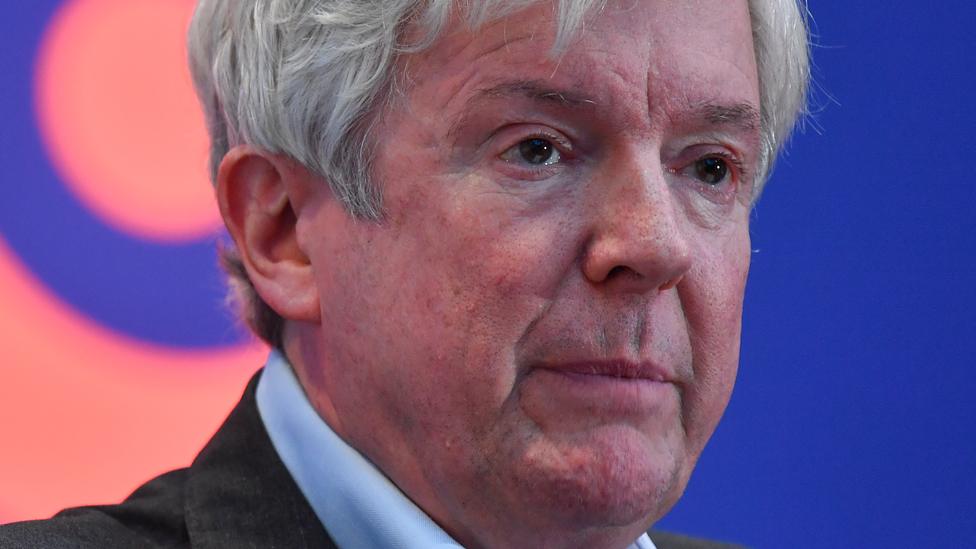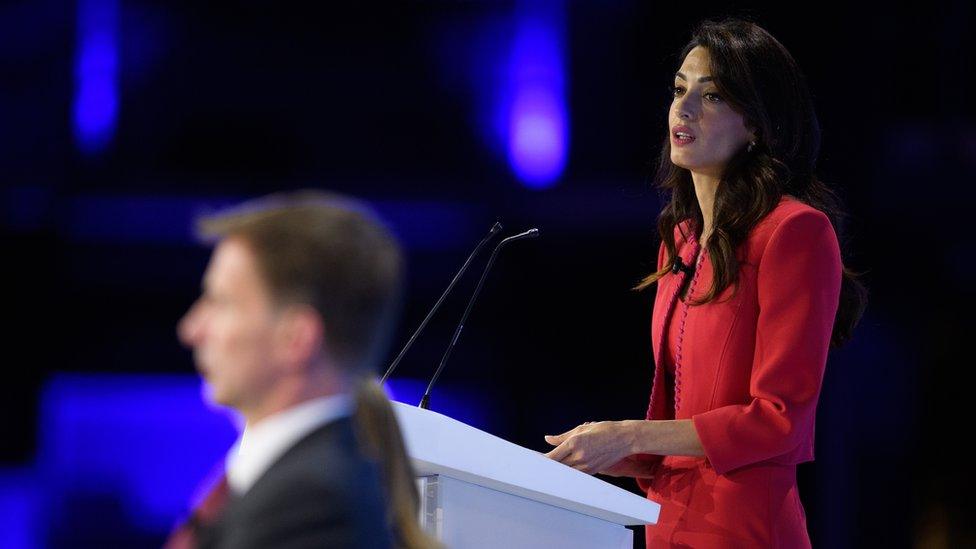BBC director general warns against 'assault on truth'
- Published
- comments

Lord Hall said he would use the BBC's "trusted voice to lead the way"
The BBC's director general has warned that the world is facing "the biggest assault on truth since the 1930s".
Speaking at the Global Conference For Media Freedom in London, Tony Hall said: "An assault on truth is an assault on democracy."
He compared the spread of fake news to propaganda used by the Nazi party in the build-up to the Second World War.
"All those who believe in integrity in news must work together to turn the tide," he said.
Lord Hall added that the BBC had a role to play in battling fake news and press repression across the world. "We are ready to do even more to promote freedom of expression worldwide," he said.

Amal Clooney and Jeremy Hunt also spoke at the conference
He told the conference: "We need to reassert the core principles of good journalism like never before. In a sea of disinformation and partisan reporting, we need to stand up for independence, impartiality, and reporting without fear or favour."
He added: "I'm determined that we use that unique reach and trusted voice to lead the way - to create a global alliance for integrity in news."
Also on the conference panel were UK Foreign Secretary Jeremy Hunt, as well as human rights lawyer Amal Clooney, who has represented WikiLeaks founder Julian Assange.
Foreign Secretary Jeremy Hunt says media freedom is a universal cause
Clooney said: "The current media crisis involves both the silencing of truth and the amplification of misinformation to levels we have never seen before.
"I believe the way the world responds to this crisis will define our generation and determine whether democracy can survive."
Last month, Assange's legal team branded the US extradition case against him "an outrageous and full-frontal assault on journalistic rights", as a court ordered him to face a full extradition hearing next year.

The new threats to journalism
By Amol Rajan, BBC media editor
In some democracies, journalists are suddenly presumed guilty until proven innocent.
The beatings given to journalists, external in India, and the verbal beatings meted out by President Trump, are both motivated by the (generally) false belief that journalists are part of a crooked elite that is conspiring against the public.
Many journalists do appalling things every day, have hidden agendas or base morals, and poison the public domain. But a majority don't.
Restoring trust in them, particularly in an era of unreliable information, will require outstanding journalism that inspires the public, and a culture willing to make heroes of such reporters. That, in turn, can only happen if there is reliable financing for high-quality and independent journalism. And the best guarantee of independence is profit.

Follow us on Facebook, external, on Twitter @BBCNewsEnts, external, or on Instagram at bbcnewsents, external. If you have a story suggestion email entertainment.news@bbc.co.uk, external.
- Published11 July 2019